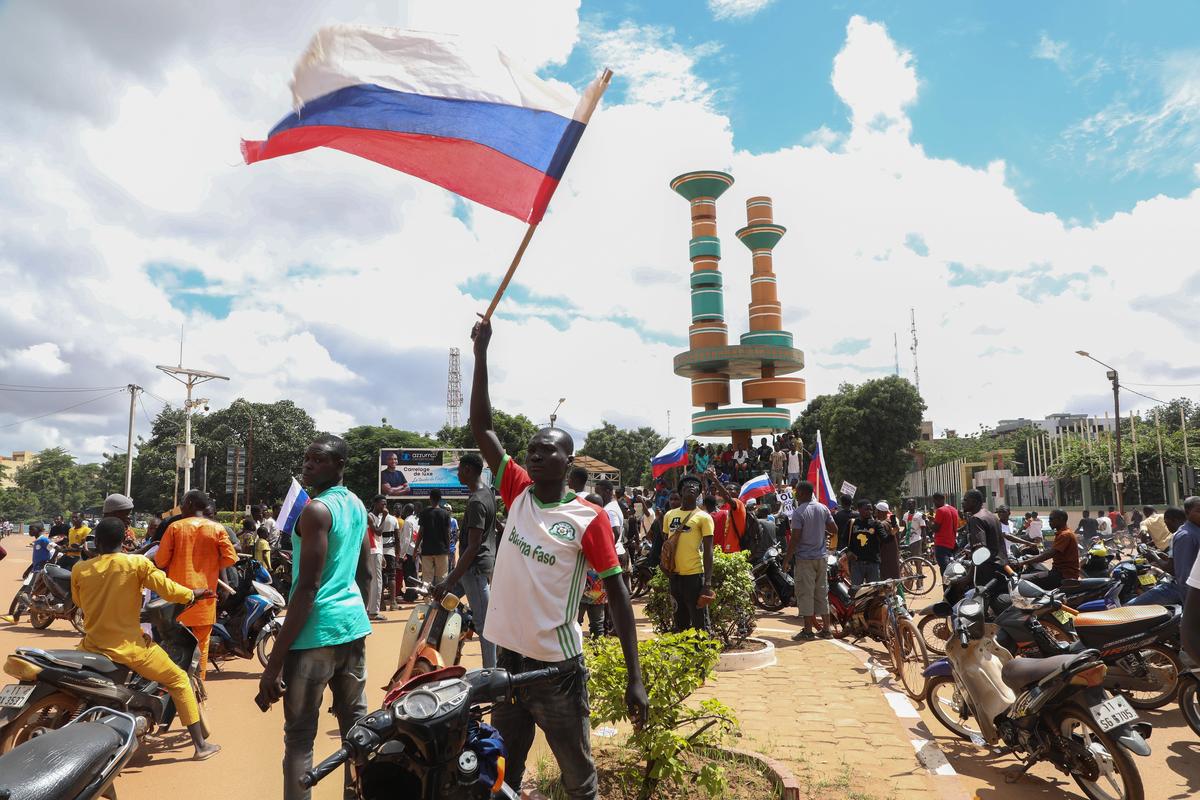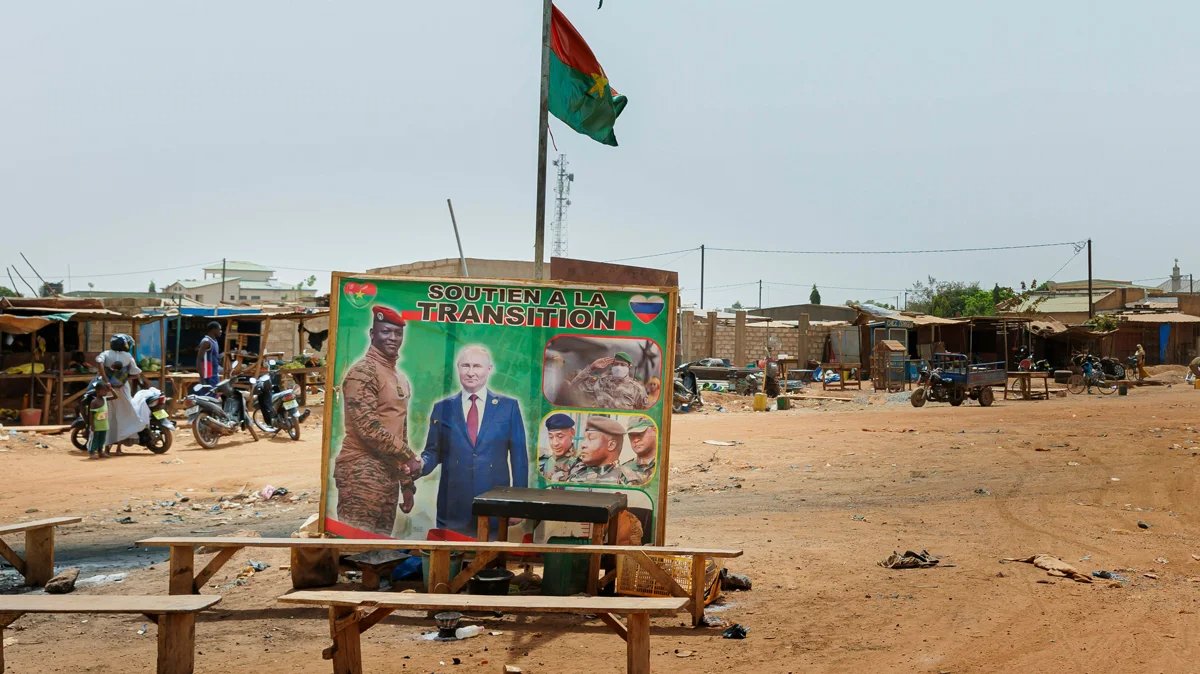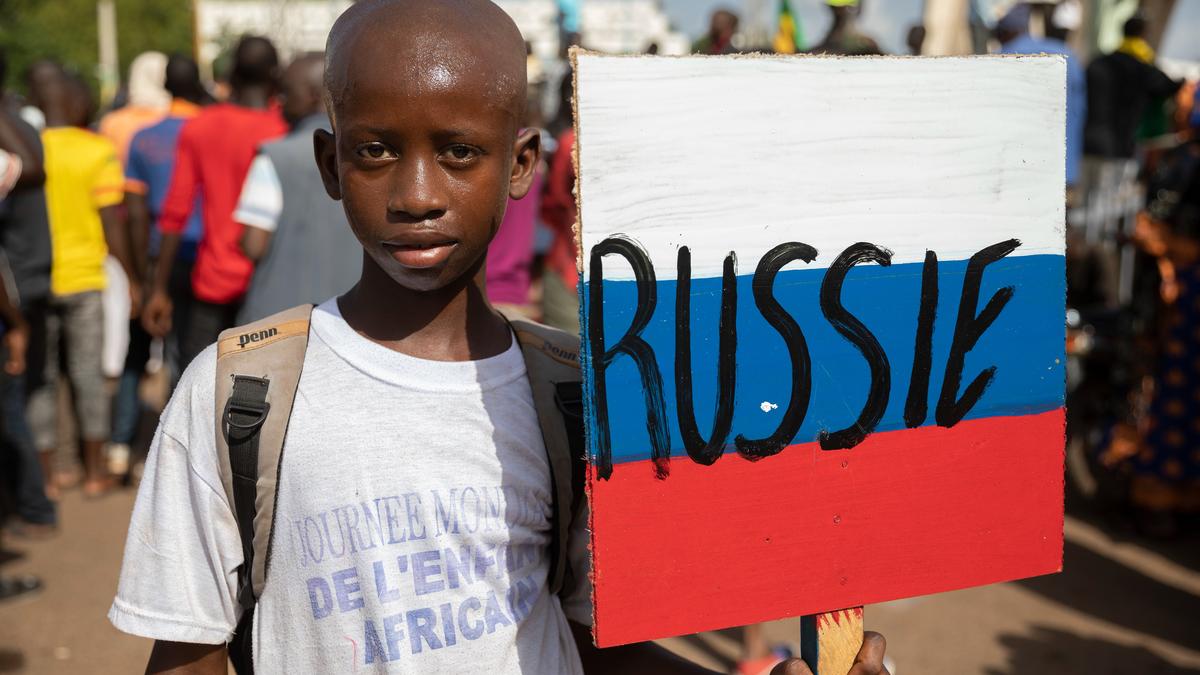Veteran Russian Foreign Minister Sergey Lavrov repeatedly boasted at this month’s Russia-Africa Partnership Forum that the Kremlin’s relations with Africa had never been more active. But beyond rhetoric, what has Russia actually achieved on the continent, and how much influence does it currently exercise?
Since their inception in 2019, Russia–Africa summits have always been well attended, and this year’s conference in Sochi was no exception, once again being attended by delegates from each African country, including some 45 ministers.
With Russia’s relations with the West at their lowest point since the Cold War and the country an effective global pariah over its invasion of Ukraine, Russia–Africa summits are one of the increasingly rare chances the Kremlin has to showcase its continued diplomatic engagement with the world, something considered vital by a government obsessed with appearance.
Moscow also sees these summits as a useful way to counteract Western influence in the Global South, which it increasingly does by leveraging narratives of the West’s historical colonial exploitation of the continent while also recalling Soviet support for African independence movements during the Cold War, which many African leaders still remember with genuine gratitude today.
Disinformation campaigns
Since Russia’s invasion of Ukraine, the Kremlin has tapped into the long-standing grievances against the West common to many African nations, which have seen growing calls for reparations to be paid for slavery and colonialism, as well as demands for greater African representation and influence at international bodies such as the United Nations.
Russia’s approval rating among Africans, which initially plummeted after the invasion of Ukraine in February 2022, rebounded in 2023, climbing from 34% to 42% — its highest level since 2012, according to polling company Gallup.
The Russian agenda in Africa is advanced in large part through disinformation campaigns, and research carried out by The African Centre for Strategic Research (ACSR), a US-government-funded think tank, found that 40% of disinformation campaigns being waged in Africa last year could be traced back to Russia.
The Kremlin’s efforts to sway public opinion targeted at least 22 African countries last year, according to the ACSR, reaching several million people through tens of thousands of deliberately false stories posted on social media and in the press.

A man waves a Russian flag following a coup in Ouagadougou, Burkina Faso, 2 October 2022. Photo: EPA-EFE/ASSANE OUEDRAOGO
Disinformation networks linked to Russia’s Wagner mercenary group twice spread false rumours about a coup in Niger prior to an actual coup there in July 2023, during which Wagner-linked bots and paid activists backed the coup leaders on social media, framing the putsch as being symbolic of a surge in African support for Russia’s worldview.
In October, The New York Times reported that pro-Russian activists were spreading disinformation claiming that a scientific programme supported by the Bill and Melinda Gates Foundation to breed genetically modified mosquitoes in Burkina Faso was not aimed at combating malaria, but rather at spreading the disease, as well as dengue fever.
Russia’s strategy in Africa can be broken down to official and unofficial categories working together in tandem. In some countries, Moscow leans heavily on its well-established diplomatic channels, particularly in countries such as South Africa, where Russia’s historical support for the African National Congress (ANC) dates back to the Cold War.
“You call Moscow up, and by the time you finish, the stuff is already being loaded onto a plane,” said one senior West African official.
In countries where Russia doesn’t have a long history of ties, including in many parts of the Sahel and West Africa, Russian operatives adopt more clandestine methods such as opening a local branch of Russian House, the country’s equivalent to the Goethe Institute or the Alliance Française.
These cultural centres are typically opened by public organisations that sign a contract with Rossotrudnichestvo, the Russian government agency charged with administering civilian foreign aid and cultural exchange. In July, Rossotrudnichestvo announced it had signed deals to open brand new Russian Houses in Algeria, Mali and Niger, three unstable but strategically vital countries.
Other soft power agents of the Russian state such as the Russian Orthodox Church and propaganda broadcaster RT have also expanded their influence on the continent in recent years, alongside private companies such as the Yekaterinburg-based consulting firm Bureau Legint, which, according to independent investigative outlet The Insider, is staffed by former Russian military intelligence officers.
Weapons for influence
Also key to Kremlin influence in Africa is the military support it is able to offer the continent’s least savoury regimes. Despite the Wagner Group having been formally disbanded following the death of its leader Yevgeny Prigozhin last year, Russian mercenaries remain active on the continent, with most former Wagnerites having been absorbed into a rebranded version of Wagner called the Africa Corps, which is controlled by Russia’s Defence Ministry.
Current estimates made by the European Council for Foreign Relations (ECFR) put the number of Africa Corps fighters currently in the Central African Republic at around 2,000, with roughly another 1,000 in Mali, 100 in Burkina-Faso, and smaller contingents in both Niger and Sudan.
Moscow has also seen its influence in Africa grow following a series of coups in West and Central Africa last year, including in Gabon, Niger, Burkina Faso, Chad, and Mali — coups that Moscow itself played a role in facilitating.

A poster showing Burkina Faso President Ibrahim Traoré promoting the country’s friendship with Russia, in Ouagadougou, Burkina-Faso, 5 March 2024. Photo: Ute Grabowsky / photothek.de / picture alliance / Scanpix / LETA
Unlike most Western countries, Russia does not make arms sales contingent on human rights observance, nor does it specify under what circumstances weapons are to be used. “You call Moscow up, and by the time you finish, the stuff is already being loaded onto a plane,” said one senior West African official quoted in the ECFR’s report.
According to the Stockholm International Peace Research Institute (SIPRI), Russia was the largest supplier of arms to Africa between 2019 and 2023, providing almost a quarter of the continent’s weapons ahead of the US (16%), China (13%) and France (10%).
However, there are signs that the prospects for future large-scale Russian arms exports to Africa may be diminishing, particularly in sub-Saharan Africa. With the war in Ukraine about to enter its fourth year, Russia’s military industrial complex finds itself under increasing strain, meaning that Moscow will struggle to fulfil orders for additional military supplies from overseas.
The orders themselves are also dwindling, according to SIPRI data, with imports of Russian arms to sub-Saharan Africa falling 44% between 2019 and 2023, during which time China overtook Russia to become the region’s largest weapons supplier.
Most African governments, keen not to be treated as pawns in a larger geopolitical struggle, have opted to keep their partnerships diversified.
Prior to the war in Ukraine, Angola was Russia’s single biggest customer in sub-Saharan Africa, yet in an interview in late 2022, Angolan President João Lourenço specifically invited the US and its NATO allies to “participate in Angola’s military equipment programme”. Nigeria has also sought to reduce its reliance on Russian weaponry in light of a recent deal it made with India to modernise Nigerian defence production. As a result, Russia has become increasingly entangled with unstable, conflict-ridden states such as Sudan, Mali, Niger and Burkina Faso.
Diplomatic manoeuvring
Most African governments, keen not to be treated as pawns in a larger geopolitical struggle for influence between Russia, China and the West, have opted to keep their partnerships diversified rather than definitively picking a side, a strategy that allows them to retain more control over foreign policy decisions.
“One thing I definitely dislike is being told ‘either you choose this or else,’” South Africa's then Foreign Minister Naledi Pandor told a press conference with US Secretary of State Anthony Blinken in 2022, before going on to describe Russia as a “very negligible economic partner for South Africa”, given that Pretoria’s annual trade with Russia at the time stood at just €3.8 billion, compared to the €19.2 billion of business South Africa conducted with the US.
Despite Russia’s relatively meagre economic presence on the continent — Russia invests less than 1% of its foreign direct investment in Africa, and exports roughly seven times more than it imports — African governments have nevertheless sought to hedge their bets when taking a stance on the war in Ukraine.
For instance, several days after South Africa’s President Cyril Ramaphosa called Russia “a very valuable ally and friend” at last month’s BRICS summit in Kazan, South Africa’s Home Affairs Minister Leon Schreiber used exactly the same words to describe Ukraine.
Likewise, after calling Russia a “friend” and urging that the war in Ukraine be resolved “in a way that is respectful to both sides” in May 2023, Kenyan President William Ruto condemned Russia’s invasion of Ukraine as “unlawful, unjust and against international law” a year later.
It’s therefore unsurprising that the Kremlin’s relationships with African states consistently fall short of the kind of meaningful geopolitical and economic alignment desired by Kremlin propagandists. This will almost certainly continue to be the case while pragmatism and national self-interest rather than ideological affinity or shared values drive Russia’s unprincipled engagement with the continent.
Join us in rebuilding Novaya Gazeta Europe
The Russian government has banned independent media. We were forced to leave our country in order to keep doing our job, telling our readers about what is going on Russia, Ukraine and Europe.
We will continue fighting against warfare and dictatorship. We believe that freedom of speech is the most efficient antidote against tyranny. Support us financially to help us fight for peace and freedom.
By clicking the Support button, you agree to the processing of your personal data.
To cancel a regular donation, please write to [email protected]

